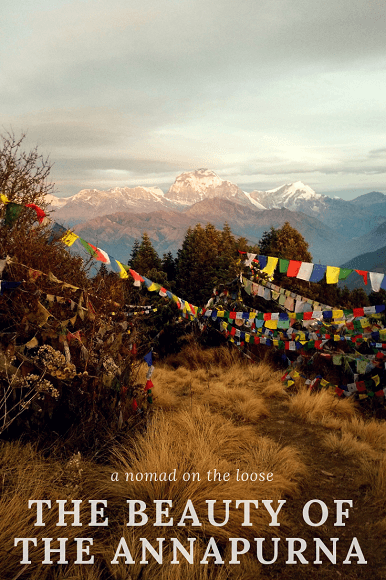This post may contain affiliate links. If you click on one and purchase something, I may receive an affiliate commission — at no extra cost to you.
Perhaps like many other people, the Himalayas always signaled Mount Everest to me. It wasn’t until I started thinking about heading to Nepal before my Bhutan trip that I heard about the Annapurna.
You see, I knew I didn’t have enough time to do the Everest Base Camp trek, but I wanted to get in some trekking while in Nepal. And I’m so glad I didn’t have time for EBC — because it introduced me to the Annapurna.
Located in the north-central part of Nepal (Everest is to the east near the border with China), the Annapurna Massif is home to some of the world’s tallest and deadliest mountains. The full Annapurna Circuit typically takes 12-24 days, whereas the shorter Ghorepani Poon Hill trek takes 4-7 days.
More to come on how to DIY the Ghorepani Poon Hill trek, sans guide and sans porter. For now, enjoy the beauty of the Annapurna from our 4 days on the trail.
Trekking from Nayapul toward Ghorepani
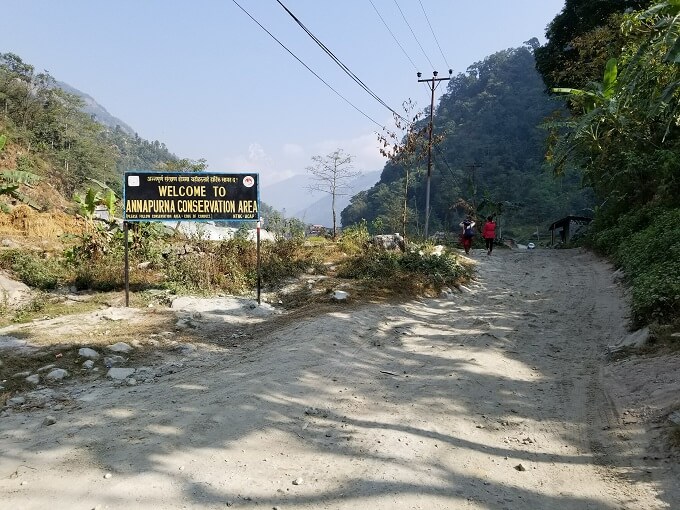
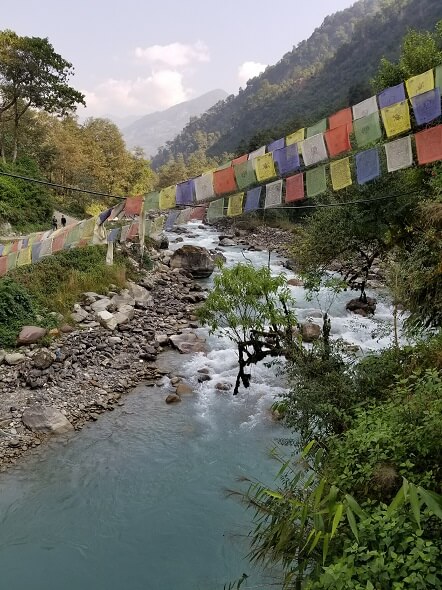
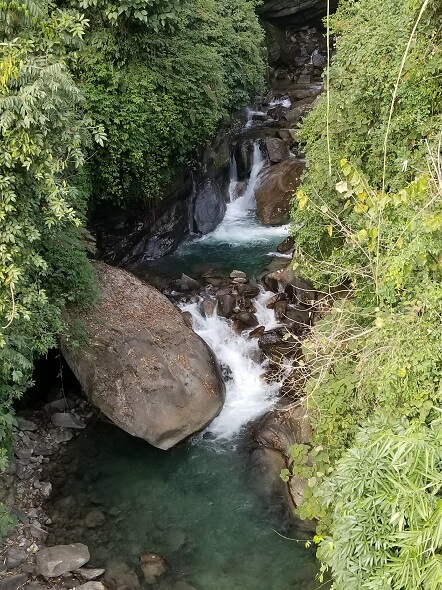
While the Poon Hill trek can take anywhere between four to seven days, we chose to do ours in four. Wake up each day and eat a granola bar or two as we get started, and then just go, go, go until we stop for the day. No stops otherwise except to fill up on water or tie our shoes.
The first two days takes you from the entrance of the Annapurna Conservation Area to Ghorepani, the base from which you head up to Poon Hill, the photographic climax of the trek.
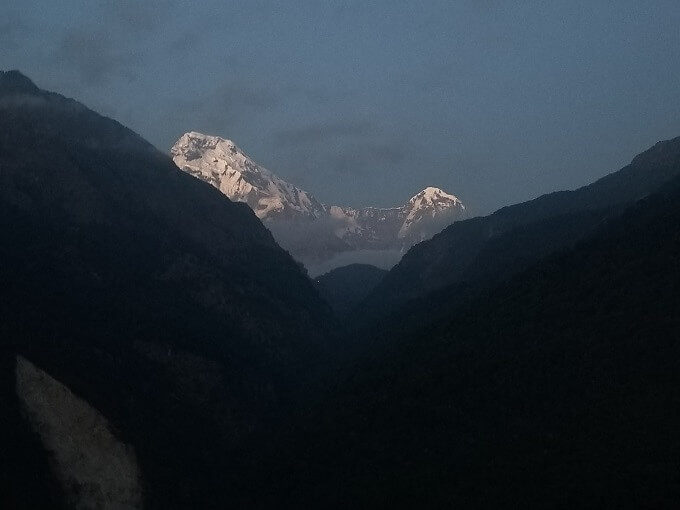
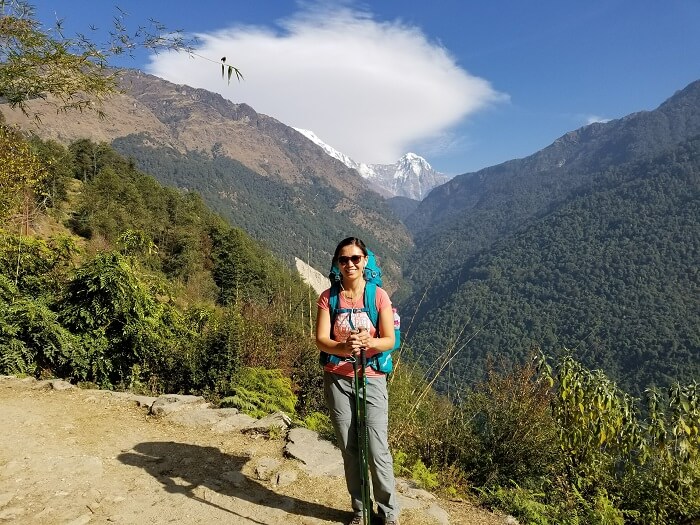
Poon Hill sunrise day
Daytime in the Annapurna isn’t all that cold, even in December. This was quite surprising to me as I expected to need to wear all my clothes while in the Himalayas.
Until the sun is fully out, however, it’s pretty darn cold.
The main attraction of the Ghorepani Poon Hill trek is sunrise at Poon Hill, so having enough clothes to stay warm in the dark of night is absolutely necessary.
We left our guesthouse, which was located smack dab in the middle of Ghorepani, around 5:25 a.m. to hike up Poon Hill. I was sweaty and cold at the same time, having worn all my gear for the climb. Once we got up top, however, it was just cold, cold, cold.
My hands froze as I continually adjusted the camera settings to adapt to the changing light. But the beauty of the Annapurna range was more than worth the runny nose and stiff fingers.
Take a look at these photos, and judge for yourself.
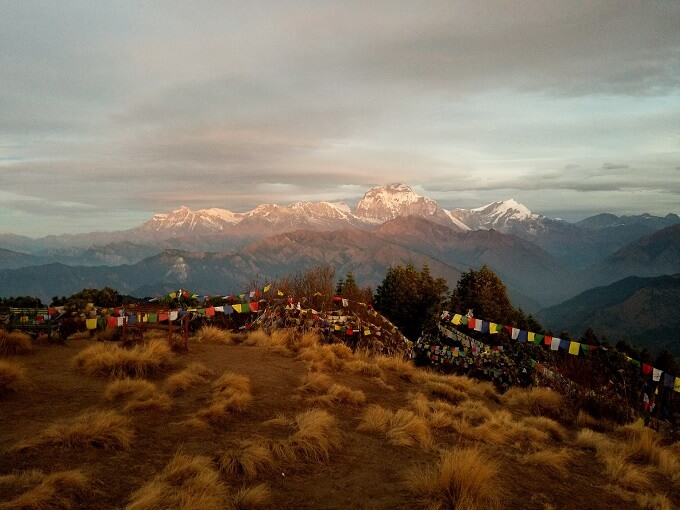
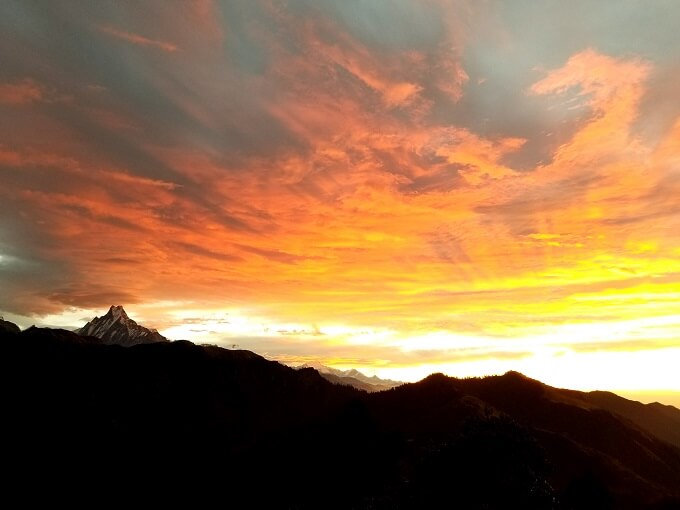
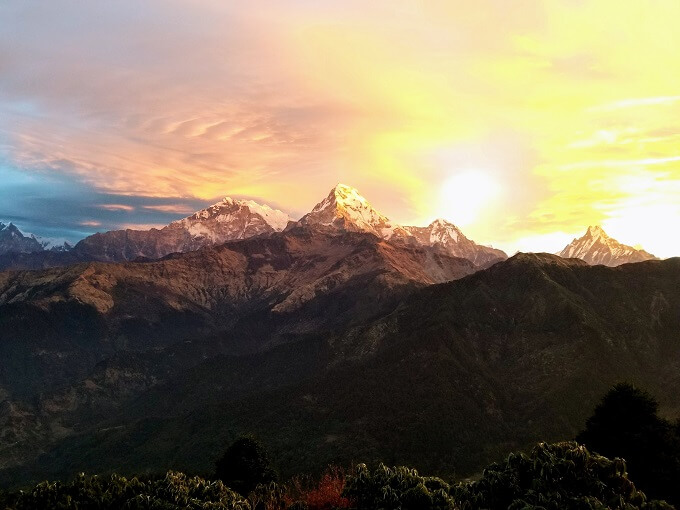

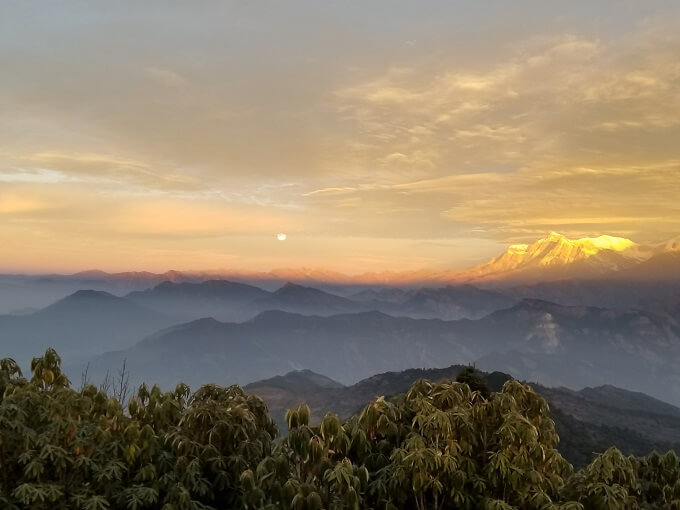
Wrapping up our time in the Annapurna
The rest of the trek is mostly downhill, and if you really hustle, you could potentially get from Ghorepani back to Nayapul on the same day and cut your hike down to 3 days. However, that would mean cutting short your time on Poon Hill and trekking in the dark, neither of which is a particularly smart idea in my opinion.
Personally, it wasn’t even really an option. While it’s counterintuitive, going downhill has always been way harder for me than hiking uphill. So I leisurely went my way and enjoyed the rest of the views on the trek.
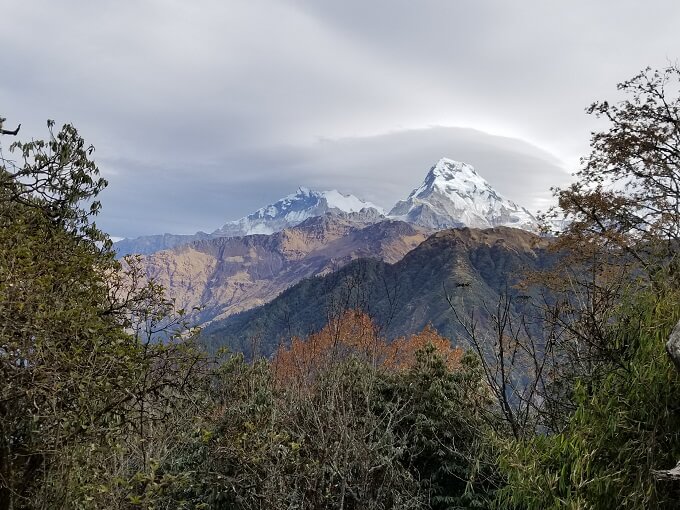
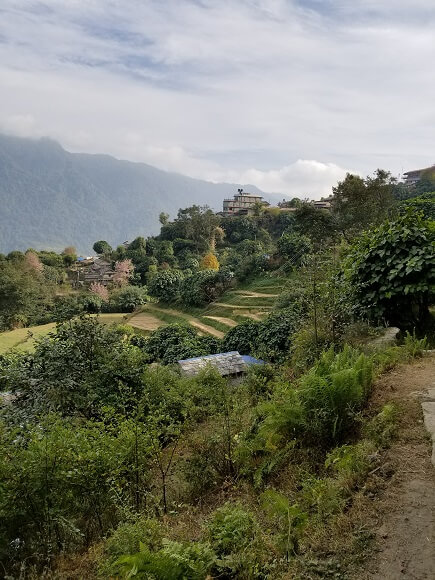
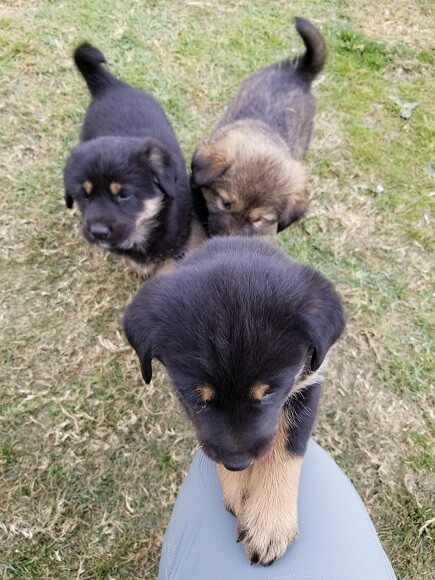
I hope the beauty of the Annapurna has inspired you to learn more about it and to see it for yourself. More to come on how to do the Ghorepani Poon Hill trek in a future post.
Stay tuned, and in the meantime, pin it for inspiration!
